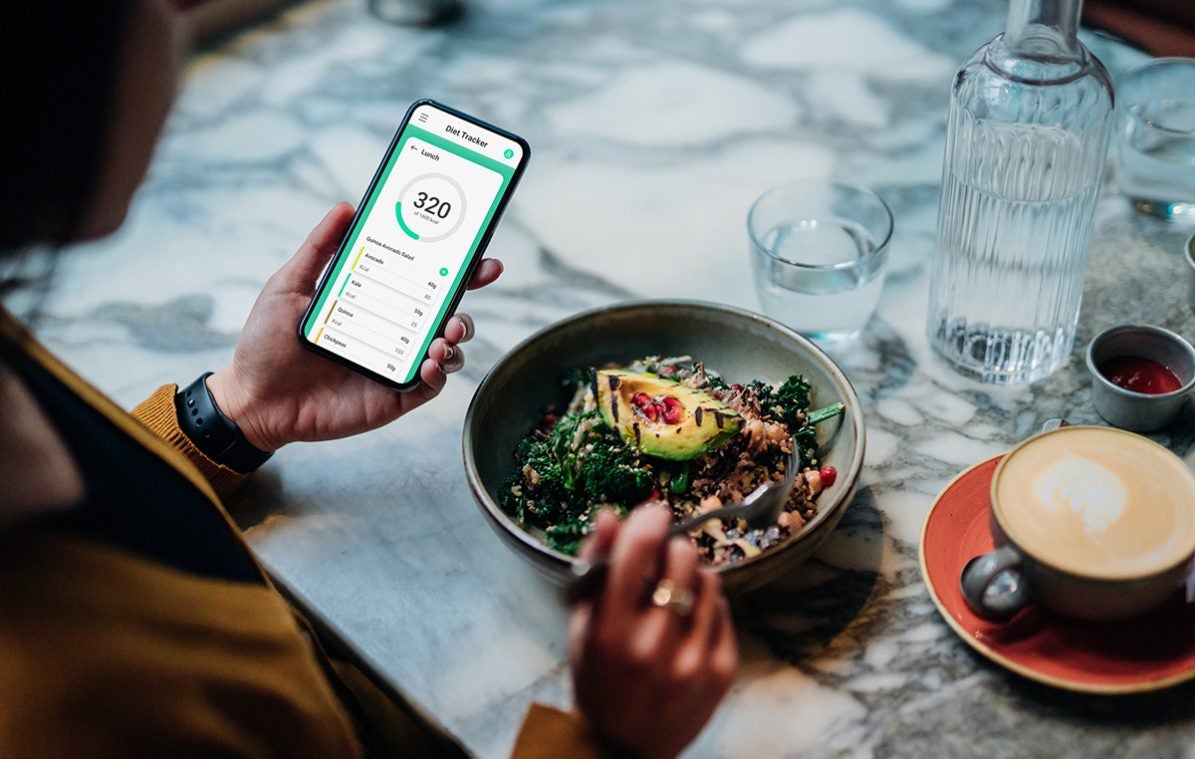6 Ways Diets Are Tricking You & How to Stop Falling for It
 ©Oscar Wong
©Oscar Wong
Ever found yourself dividing foods into good and bad, purposefully cutting calories after a weekend of cake and chips, or eliminating foods from your diet completely? Then, like a lot of us in modern society, you’re living with a diet mindset.
The diet mentality is made up of various beliefs that place body weight and outward appearance above well-being. Being slim, or seeing a certain number on that scale, is what means you’re living a healthy and happy life. But we all know that the outside never reflects everything that’s going on inside. Having a diet mentality also means being on a non-stop diet and seeing your body as an enemy instead of a friend. We don’t think that sounds healthy at all! In fact, a review paper on the topic by researchers Vartanian and Porter finds that this negative view of weight is more likely to lead to unhealthy eating and a higher weight. Want to figure out how to learn to listen to your natural intuition again and break free from your guilty conscience? We’ll show you how to turn your back on the diet mentality!
For more on yo-yo dieting: 6 ways to keep the weight off after all your hard work
#1 Recognize the diet mentality
The hard part about ditching the dieting mindset is that we’re often in it unconsciously. But if you don’t reflect on your own behavior, you can’t get rid of it. Do some of the following things sound familiar? Then it’s time to build a healthier mindset for the future. When these thoughts pop into your head, see if you can identify them. Try to be aware of them next time, but don’t judge them.
- Starting over with a new diet again and again.
- Foods in the supermarket are “good” or “bad” for you.
- Some foods are completely forbidden.
- The number on the scale affects your mood throughout the day.
- Exercise is punishment for eating “too much.”
- Either overeating or sticking to a strict diet.
#2 Learn to eat intuitively
Eat what you feel like – without any pesky rules. Sounds way too good to be true? Intuitive eating refers to a way of eating that is the complete opposite of dieting. No diet plan, no prohibitions, & no guilt after eating. The concept of intuitive eating was introduced in 1995 by two nutritionists, Evelyn Tribole and Elyse Resch. They focused on the connection between the body and the mind instead of just the body. Intuitive eating means supporting your well-being instead of sinking into a guilty conscience.
Click here for more: Intuitive Eating: What It Is and How You Can Do It
#3 Don’t weigh yourself
Does the number on the scale determine your mood or what you can eat today? Then it might be time to banish it from your household completely!
Especially when you have specific fitness goals, the scale is not the best tool for measuring your progress. Since you’re measuring your entire body weight when you weigh yourself, it’s not clear where any weight gain or loss is coming from. Not convinced? Read more about mistakes with weight loss here.
#4 Strengthen your relationship with yourself
You are so much more than a number or a body shape. Keep reminding yourself of that! Strengthen your relationship with yourself by spending more time with yourself and practicing mindfulness. Enjoy it because it’s the most precious time you have.
#5 Change your focus
Every thought is about food. What did I eat, what am I about to eat, and can I eat this? Break free of this vicious cycle, and find other things to think about. Set goals that don’t involve restrictions. Trust your body because it can learn to listen to its natural intuitions again.
#6 Be honest with yourself
Feel like your thoughts about food, weight loss, and weight are taking over? Then it might be time to seek professional help. But don’t be too hard on yourself either! Developing a healthy mindset and positive relationship with food is a process, and it takes time.
More healthy living tips from foodspring:
- Bring mindfulness into your life and see the changes unfold!
- How to Love Yourself: Tips & Tricks to Build Self-Confidence
- 6 Principles To Revolutionize Your Self-Care Now
Sources for this article
We at foodspring use only high-quality sources, including peer-reviewed studies, to support the facts within our articles. Read our editorial policy to learn more about how we fact-check and keep our content accurate, reliable, and trustworthy.






























